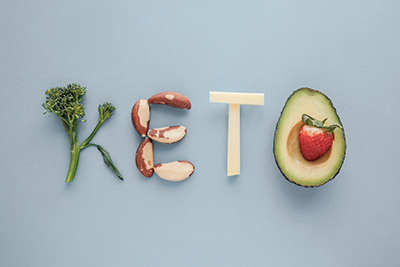
Are you intrigued by all the hype surrounding the ketogenic diet but unsure about what it entails? You're not alone. With so much information out there, understanding the ins and outs of the ketogenic diet can feel overwhelming for beginners.
But don’t worry—we're here to provide a comprehensive overview that breaks down the fundamentals of the ketogenic diet, shedding light on its principles, benefits, and practical considerations.
The ketogenic diet, often abbreviated as keto, is a high-fat, low-carbohydrate eating plan designed to induce a metabolic state called ketosis.
While in ketosis, your body transitions from using glucose as its primary fuel source to burning fat for energy, producing ketones in the process.
To achieve ketosis, individuals will aim to consume around 70-75% of their daily calories from fat, 20-25% from protein, and only 5-10% from carbohydrates.
Ketosis is a natural metabolic state characterized by elevated levels of ketone bodies in the bloodstream.
When you restrict carbohydrate intake, your body's glycogen stores become depleted, prompting it to switch to an alternative fuel source—fat. Ketone bodies, such as beta-hydroxybutyrate (BHB) and acetoacetate, are produced as fat is broken down into fatty acids and transported to the liver. These ketones serve as efficient energy substrates for the brain, muscles, and other tissues, providing a steady source of fuel in the absence of glucose.
The ketogenic diet emphasizes consuming healthy fats, such as avocados, nuts, seeds, olive oil, and fatty fish, to fuel the body and support ketone production.
Carbohydrate intake is restricted on the ketogenic diet to minimize blood sugar spikes and promote ketosis. This means limiting or avoiding starchy foods like bread, pasta, rice, and sugary snacks.
Additionally, while protein is an essential macronutrient, excessive protein consumption can potentially inhibit ketosis. Therefore, the ketogenic diet emphasizes moderate protein intake from sources like meat, poultry, seafood, and tofu.
The keto diet offers many health benefits:
If you're considering trying the ketogenic diet, it's essential to approach it with careful planning and consideration.
Ease into the ketogenic diet by gradually reducing your carbohydrate intake over a period of days or weeks to minimize potential side effects like the keto flu. Additionally, drink plenty of water to stay hydrated and support your body's adjustment to ketosis. Adequate hydration is especially important during the initial stages of the ketogenic diet.
While the ketogenic diet can be effective for weight loss and other health goals, it's essential to ensure you're still getting essential nutrients from a variety of food sources. Lastly, it is always important to consult with an experienced healthcare professional when trying any new diet or weight loss program.